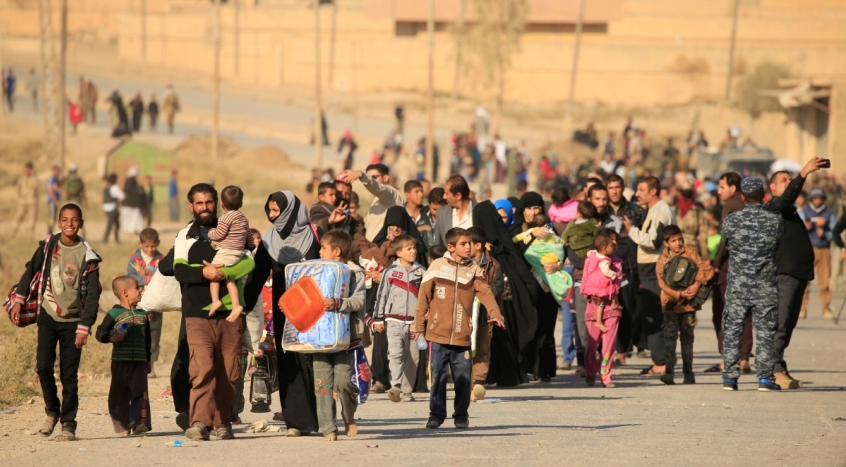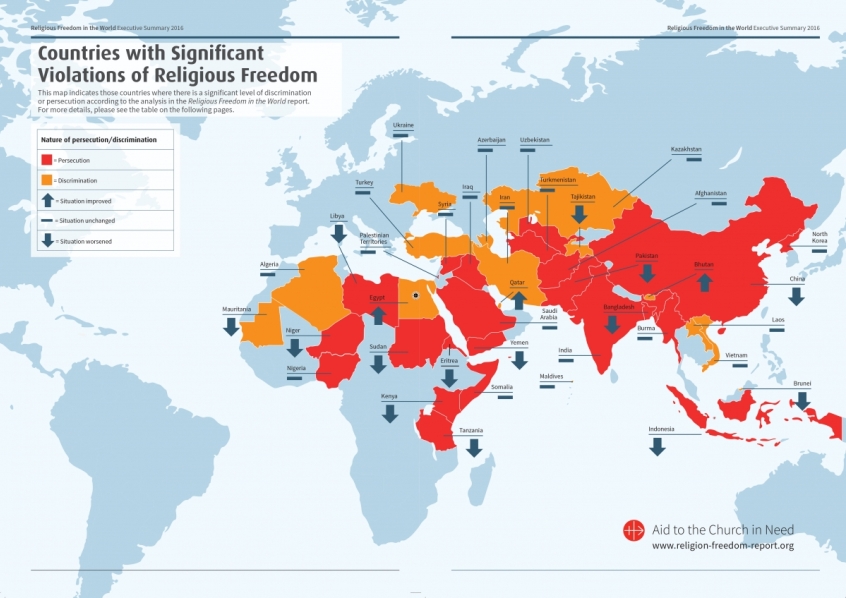The emergence of "Islamist hyper-extremism" is primarily responsible for a shocking rise in religious persecution across the world, according to a new report released on Thursday.
Violent terror attacks inspired by Islamist ideology have now taken place in one in five countries, the report found, highlighting that most religious persecution is from militant organisations and not governments.

"A virulent and extremist form of Islam emerged as the number-one threat to religious freedom," according to the report, Religious Freedom in the World, by Catholic charity Aid to the Church in Need (ACN). Researchers examined 196 countries across the globe and of these, 38 showed "unmistakable evidence of significant religious freedom violations".
Out of the 11 countries that had worsening levels of persecution, "nine were under extreme pressure from Islamist violence", the report found. And out of the 11 countries with consistent levels of persecution, seven faced huge problems relating to Islamism both from non-state militant groups and and state-sponsored oppression.
The report was launched in Parliament on Thursday morning and came after iconic landmarks across London were lit up red on Wednesday evening to mark the suffering of those persecuted for their faith.
The report defined "hyper-extremism" as a radical creed combined with systematic attempts to drive out groups not like them. The tactics go beyond suicide attacks to include mass killings "glorying in the brutality inflicted on its victims, which is paraded on social media".
"It emerged that a massive upsurge in violence and instability linked to Islamism had played a significant role in creating an explosion in the number of refugees," the report said. It found a "key objective" of Islamist hyper-extremism is to eliminate other religious communities from land, which has resulted in a mass exodus from the Middle East.

"The frequency and intensity of atrocities against Yazidis, Christians, Baha'is, Jews and Ahmaddiyya Muslims is on the rise," wrote John Pontifex, editor of the report.
"The atrocities committed by these aggressive Islamist groups in Syria, Iraq, Libya and by their affiliates elsewhere have arguably been one of the greatest setbacks for religious freedom since the Second World War," he added. "What has properly been described as genocide, according to a UN convention which uses that term, is a phenomenon of religious extremism almost beyond compare."
As well as non-state militant groups, the report also criticised countries such as India, Pakistan and Burma which have a state religion. In these countries "steps have been taken to defend the rights of that faith as opposed to the rights of individual believers," the report found.
But it also found that the threat of religious extremism was used as a justification for a crackdown on freedom of speech or belief. This is particularly the case with the Rohingya Muslims in Burma, whom the report described as the "most persecuted minority in the world".
It added: "An upsurge in arrests, legislation restricting religious freedom, state rhetoric against religious plurality and sporadic acts of government-inspired violence have put renewed pressure on faith groups."













